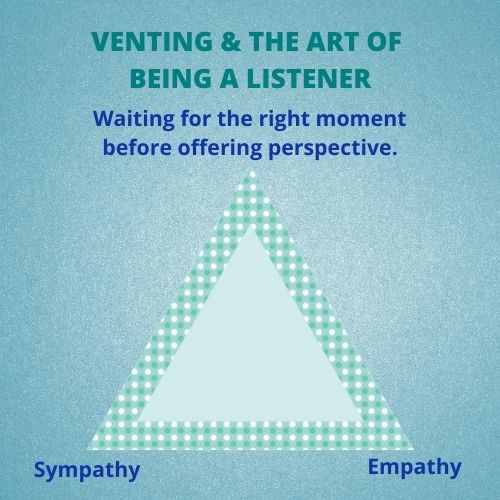When we get stuck in a venting session, it feels good in the moment, because we’re connecting with other people. But if all we do is vent, we don’t address our cognitive needs, too. We aren’t able to make sense of what we’re experiencing, to make meaning of it. Emotional venting likely doesn’t soothe anger as much as augment it. The same is true of grief or anxiety following trauma.
Being around someone stuck in anger, fear, or sadness cycles can be overwhelming for listeners who may end up “catching” the emotions themselves and create friction in social relationships

Venting and the Art of Being a Listener:
- Empathy
- Sympathy
- Waiting for the right moment before offering perspective
People differ, depending on what they’re dealing with, how intense their experiences are, so be sensitive to the fact that some people may need more time before they’re ready to transition from venting to thinking is really important.
Skillful Venting:
- Be selective about when you vent
- When you vent to others, prompt them to offer perspective
- Consider to whom you vent
- Be careful around online venting
- Find out what the correct dosage of venting is and make sure to offer to supplement that with cognitive reframing.